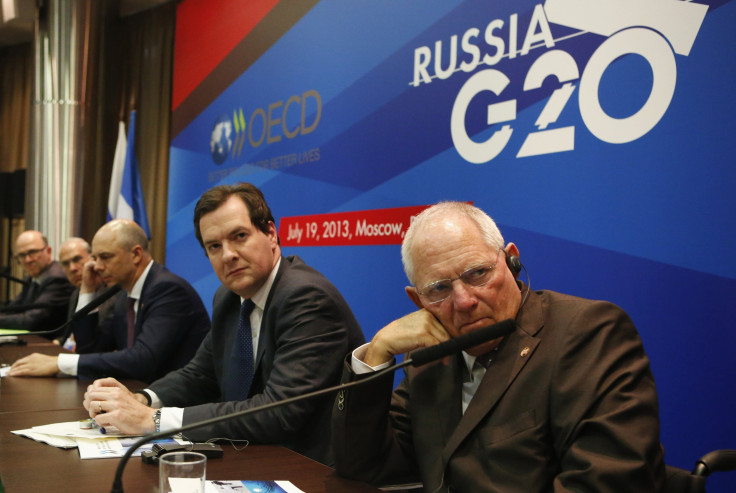OECD Outlines New Strategy To Eliminate Corporate Tax Loopholes; G-20 Ministers Welcome Effort To End ‘Double Non-Taxation’

At the request of finance ministers and central bankers from the G-20 group of major world economies, who are holding a two-day conference in Moscow through Saturday, the Organisation for Economic Co-operation and Development has issued a set of 15 recommendations to address the abuse of corporate tax loopholes.
The Action Plan on Base Erosion and Profit Shifting seeks to update tax rules dating back to the 1920s aimed at avoiding the problem of double-taxation, when a company is compelled to pay taxes on the same income when it does business in different countries.
"This is laudable, but unfortunately these rules are now being abused to permit double non-taxation," said OECD Secretary-General Angel Gurria.
The plan, to be implemented within 24 months, comes as European countries are trying to reel in the exploitation of multiple tax jurisdictions and laws to reduce corporate tax burdens. Apple Inc. (NASDAQ:AAPL) and other tech companies have been found to use different tax rules to vastly reduce or even erase their income tax liabilities.
“Today's report proposes significant changes to the international tax landscape in a very short period of time,” said Manal Corwin, principal and national leader for International Corporate Services at KPMG LLP, in a statement reacting to the OECD recommendations.
The new initiative aims to eliminate practices like setting up shell companies in low-corporate-tax countries, such as The Netherlands and Ireland, and using them as recipients of profits derived from higher-tax countries like the UK and France.
For example, the UK-based operations for Seattle-based Starbucks Corp. (NASDAQ:SBUX) pays a royalty for the use of the Starbucks brand to its European headquarters in Amsterdam, thus reducing its UK profit, lowering its tax bill there to zero in 2012. In other words, Starbucks pays itself for the use of its brand in the UK so that it appears that the company makes no profit there.
Companies have responded to the issue by pointing out that the practices are legal and that they have a fiduciary responsibility to their shareholders to reduce expenses by any legal means.
But critics aren’t buying this defense, saying that while the practices may be legal, they’re fundamentally dishonest.
"Multinationals still have not grasped that tax honesty is an integral part of corporate responsibility," Florian Wettstein, professor of business ethics at the University of St. Gallen, based in Switzerland, told the BBC. "As a result, the public increasingly perceives them as hypocritical and untrustworthy."
The recommendations aims to create closer international cooperation to “close gaps that, on paper, allow income to ‘disappear’ for tax purposes by using multiple deductions for the same expense and ‘treaty shopping,’" said the OECD, referring to the practice of shopping around for tax havens established through country-to-country treaties.
Meanwhile, in Moscow, finance ministers and central bankers supported the OECD plan, while also addressing the possibility of more global economic volatility, according to Reuters.
On Friday they called on the U.S. to be clearer about how it intends to wind down its quantitative easing policy in order to wean the global economy off cheap cash as painlessly as possible. They also agreed that China should implement greater exchange-rate flexibility and continue its push toward demand-driven growth.
© Copyright IBTimes 2024. All rights reserved.





















